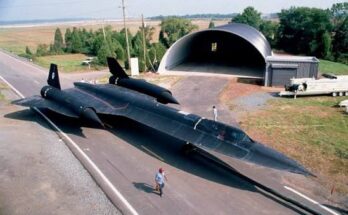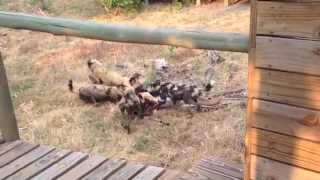
The Only Civilian Flight Allowed After 9/11: A Life-Saving Mission
The tragic events of September 11, 2001, led to an unprecedented response from the United States government. For the first time in history, U.S. airspace was completely shut down, grounding thousands of civilian and commercial flights in an effort to prevent further attacks. Amid this total lockdown, only a handful of flights were granted permission to take off—most of them military or emergency-related. Among these rare exceptions was a private jet on a critical mission: delivering life-saving anti-venom to a man in Florida who had been bitten by one of the world’s deadliest snakes.
A Nation on High Alert
Following the coordinated terrorist attacks on the World Trade Center and the Pentagon, the Federal Aviation Administration (FAA) made the swift decision to shut down all air travel over U.S. territory. This drastic measure was aimed at preventing any additional hijackings and ensuring national security.
All commercial and private flights were immediately grounded, leaving thousands of passengers stranded at airports. Military aircraft patrolled the skies, prepared to intercept any unauthorized planes. The country was in a state of fear and uncertainty, with authorities taking extreme precautions to avoid further threats.
A Deadly Snakebite and a Race Against Time
Amid this national crisis, a man in Florida was fighting for his life. He had been bitten by an extremely venomous snake, and the only antidote available was located hundreds of miles away. Without the anti-venom, his condition would quickly deteriorate, leading to organ failure and death.
Medical professionals urgently contacted authorities, explaining that without immediate action, the patient would not survive. The gravity of the situation prompted officials to make a remarkable decision: to grant special clearance for a private jet to transport the life-saving anti-venom.
The Flight That Broke the No-Fly Order
With the country’s airspace shut down and military jets enforcing strict air control, allowing a civilian flight was no small matter. After careful consideration, the FAA, in coordination with military officials, approved the emergency flight.
The private jet carrying the anti-venom was given strict instructions and was required to follow a highly regulated flight path. Fighter jets were deployed to escort the plane, ensuring its safety and preventing any misunderstandings that could lead to it being mistaken for a threat.
As the jet took off, it became one of the only civilian flights permitted to fly during the nationwide lockdown. Its mission was clear: to deliver the antidote before time ran out for the critically ill man in Florida.
An Escort Through Empty Skies
The eerie silence of the skies that day was unprecedented. Usually bustling with thousands of commercial airliners, the airspace was now nearly empty, aside from military aircraft and a select few authorized emergency flights.
The private jet carrying the anti-venom flew under intense scrutiny. Fighter jets accompanied it as it made its way to its destination, a visual representation of the heightened security measures in place. The escort was not just for protection; it was a precaution to ensure that no unauthorized aircraft took advantage of the situation.
A Successful Mission: Life Saved
Upon landing, the anti-venom was rushed to the hospital, where doctors administered it to the critically ill patient. Thanks to the rapid response and the extraordinary measures taken by authorities, the man survived.
This rare exception to the nationwide flight ban highlighted two crucial aspects of the post-9/11 security environment: the seriousness of the lockdown and the ability of officials to prioritize medical emergencies even in the face of extreme national security concerns.
The Significance of the Flight
The events of September 11, 2001, changed the world forever. Air travel would never be the same, with new security protocols reshaping the industry. The temporary closure of U.S. airspace was a necessary yet drastic response to the attacks, demonstrating the level of caution exercised by authorities.
The private jet carrying anti-venom remains a remarkable footnote in this period of history. While fear and uncertainty gripped the nation, this single flight was a symbol of humanity prevailing in the face of crisis. It proved that even during moments of unprecedented security measures, saving lives remained a top priority.
Lessons from a Historic Exception
This extraordinary event serves as a reminder of the balance between national security and humanitarian concerns. In times of crisis, governments must make difficult decisions, weighing safety against urgent medical needs. The successful execution of this mission demonstrated that, even in the tightest security conditions, exceptions could be made for the right reasons.
The post-9/11 era brought about stricter air travel regulations, but this one exceptional flight showcased the ability of authorities to respond to emergencies with flexibility and compassion. It remains one of the rare instances in history where a civilian flight was allowed to break a nationwide flight ban—all in the name of saving a single human life.



